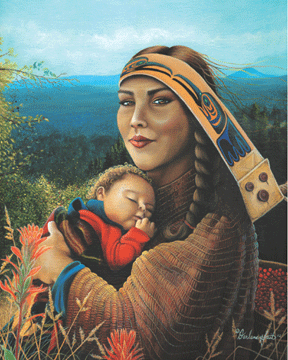Lesson Two - Canada's Race Problem
| Site: | MoodleHUB.ca 🍁 |
| Course: | English Lang Arts 10-1 |
| Book: | Lesson Two - Canada's Race Problem |
| Printed by: | Guest user |
| Date: | Tuesday, 23 December 2025, 6:44 AM |
Introduction
 Lesson Two - CANADA's Race Problem
Lesson Two - CANADA's Race Problem
Duration - 3 blocks (3 x 80 min + homework)
"The problem is that white people see racism as conscious hate, when racism is bigger than that. Racism is a complex system of social and political levers and pulleys set up generations ago to continue working on the behalf of whites at other people’s expense, whether whites know/like it or not. Racism is an insidious cultural disease. It is so insidious that it doesn’t care if you are a white person who likes black people; it’s still going to find a way to infect how you deal with people who don’t look like you. Yes, racism looks like hate, but hate is just one manifestation. Privilege is another. Access is another. Ignorance is another. Apathy is another. And so on. So while I agree with people who say no one is born racist, it remains a powerful system that we’re immediately born into. It’s like being born into air: you take it in as soon as you breathe. It’s not a cold that you can get over. There is no anti-racist certification class. It’s a set of socioeconomic traps and cultural values that are fired up every time we interact with the world. It is a thing you have to keep scooping out of the boat of your life to keep from drowning in it. I know it’s hard work, but it’s the price you pay for owning everything." ~ Scott Woods
Resources
Essay
Canada's race problem? It's worse than America's.
Websites
Canadian Racism
Antiracism Video Resources
VIDEO
Lesson
Think about a time when you felt either targeted by racism or were a witness to it.
- How did you respond?
- Was it effective or ineffective?
- Looking back, what might you do differently?
- What can you do now in your everyday life to stop racism?
- Who might your allies be?
- How can you respond together?
Read the essay Canada's race problem? It's worse than America's.
Watch the video "Our Canada: Are We Racist?" linked on the Resources page.
Explore the websites you will find under the Canadian Racism link.
Assignment
(100 marks)
Open a new Word document. Label it E101U4L2surname.
In this document, complete the assignment outlined below.
Submit this assignment using the Dropbox Folder for U4L2 research
- Using the links in the lesson to started, research Canada's race problem.
- Your research must involve at least three different sources.
- If your research is conducted entirely online, your sources must be from at least three difference web sites, and not just three pages from within the same site.
The result of your research will be a presentation on racism in Canada, focusing on Aboriginal issues.
- The position you argue will be "Canada's race problem is worse than that in the United States."
- This presentation will be different from a typical research paper, however, as you are going to write in the FIRST-PERSON, adopting the persona of someone affected by racism. You may be a/an
- Aboriginal youth
- Aboriginal parent
- Aboriginal leader
- Aboriginal elder
- social worker
- teacher
- police officer
- journalist
- municipal official
- etc.
While you will present your ideas in a format that is different from a typical research paper, all of the research position paper elements must be present. Some options for presentation form are
- newspaper story or column
- news conference
- official report
- journal
- speech
- story to friends
- interview
- etc.
- You must document your sources in a "Bibliography" at the end of your research presentation.
- Use BibMe to build your bibliography.
- Do NOT plagiarize!!
- The result of your research should be at least one page, single-spaced, 12-point font.
Conclusion
On August 28, 1963, during the height of the civil rights movement in the United States, there was the March on Washington. It was at this event that Martin Luther King, who, at that time was the leader of the African-American Civil Rights Movement, gave his famous "I Have a Dream" speech.
"Watching the whole thing on TV in the White House, President John F Kennedy, who had never heard an entire King speech before, remarked: 'He's damned good. Damned good.' Almost everyone, including even King's enemies, recognised the speech's reach and resonance. William Sullivan, the FBI's assistant director of domestic intelligence, recommended: 'We must mark him now, if we have not done so before, as the most dangerous negro of the future of this nation.'"
Consider why someone who was advocating for racial equality was seen as dangerous.